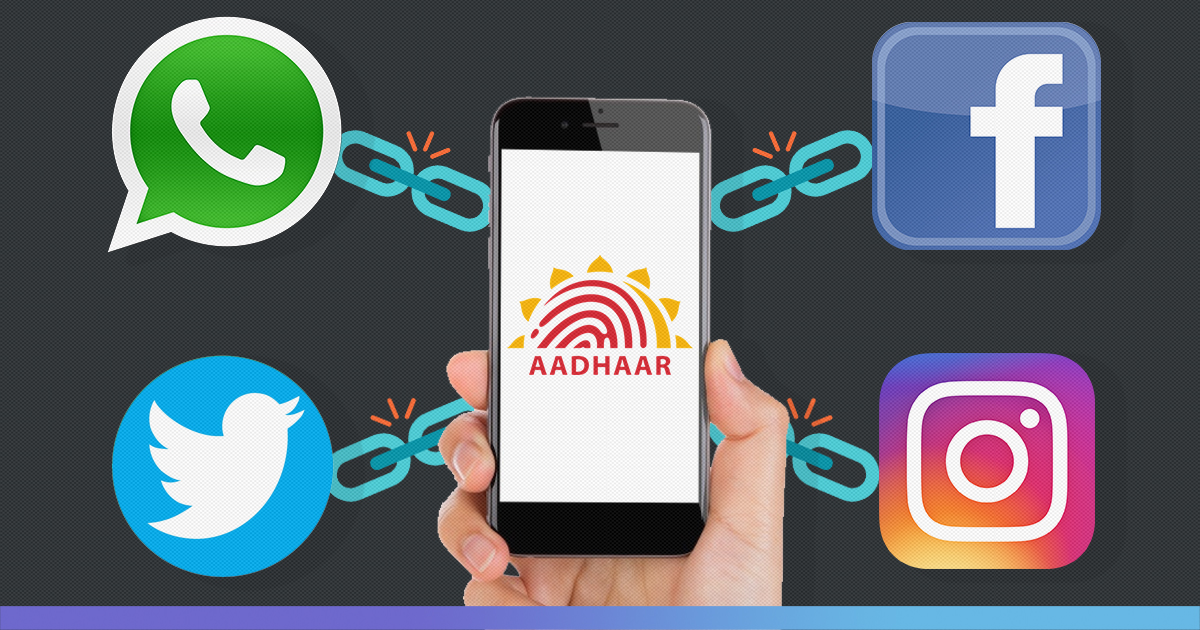The Ministry of Electronics and IT(MeitY) has raised concerns over the linking of Aadhar cards with the social media accounts of the users. MeitY has written to the Unique Identification Authority of India(UIDAI) that collects the biometric data of users and generates a 12-digit Aadhar number.
The MeitY released fresh remarks after the Supreme Court asked for the Centre’s mediation in the matter.
The MeitY also mentioned that such linkages are dangerous and would put sensitive information of the citizens of India in jeopardy. The Aadhar cards are generated to deliver the benefits of various welfare schemes and subsidies to the marginalized communities which are funded by the Consolidated Fund of India.
However, the MeitY has not yet arrived at any conclusion and asked UIDAI to intervene.
In 2018, the Supreme Court ordered Aadhar-card to be linked only to with the permanent account number to file income tax returns. After the decision amendments were made in the Aadhar and Other Laws (Amendment), Bill 2019. The bill which grants the telecom and banking companies permission to use Aadhar card to gather Know Your Customer (KYC) Information without seeking the consent of customers was recently passed by the Parliament.
Attorney General KK Venugopal appearing for the Tamil Nadu High government told the Madras High Court that the linking of Aadhar-card with the social media accounts was neccessary to check fake news. The statement was issued by the Attorney General when he appeared for the transferred petition of Facebook from the Madras High-court.
The petition was pushed to the Supreme Court(SC) by the Facebook Inc which was at loggerhead with the Tamil Nadu government as the latter wanted to make the linking of Aadhar-cards mandatory. However, Facebook thinks that it will violate its privacy policies which are universally followed.
The extended time of a month is to be utilized for analyzing the documents submitted by Facebook. An IIT professor also came to the forefront to support the petition as he claimed that the end-to-end encryption on WhatsApp is traceable. Hence, challenging the Right To Privacy which was passed in 2017.
However, renowned advocates Mukul Rohatgi and Kapil Sibal advocating for Facebook and Whatsapp, respectively; ensured that the end-to-end encryption of Whatsapp won’t let the third party, especially the private players to misuse the data. The judgement passed otherwise would have international repercussions as Facebook is operational in more than 150 countries.
Rohatgi further added that the promulgated ordinance could only be shared with private entities if the larger public interest is involved. The case encompasses two central legislations – Information Act, 2000 and Aadhar Card Act, 2016. Both of them stress on what amount of personal information could be accessed by the government.
The courts appear dubious and asked for Centre’s intervention as the judiciary is yet to figure out the players behind the infamous Blue Whale Game.
However, Rohatgi and Sibal ensured that Facebook and Whatsapp have nothing to do with the game and weren’t involved in the case in any manner.
The SC further issued a notice to the Central Government to look into the matter and suggest remedies. The SC has earlier upheld the Right To Privacy in 2017. The next hearing on the matter is scheduled on September 13th.
Also Read: Parliament Gives Its Nod To Voluntary Use Of Aadhaar As Proof Of Identity











